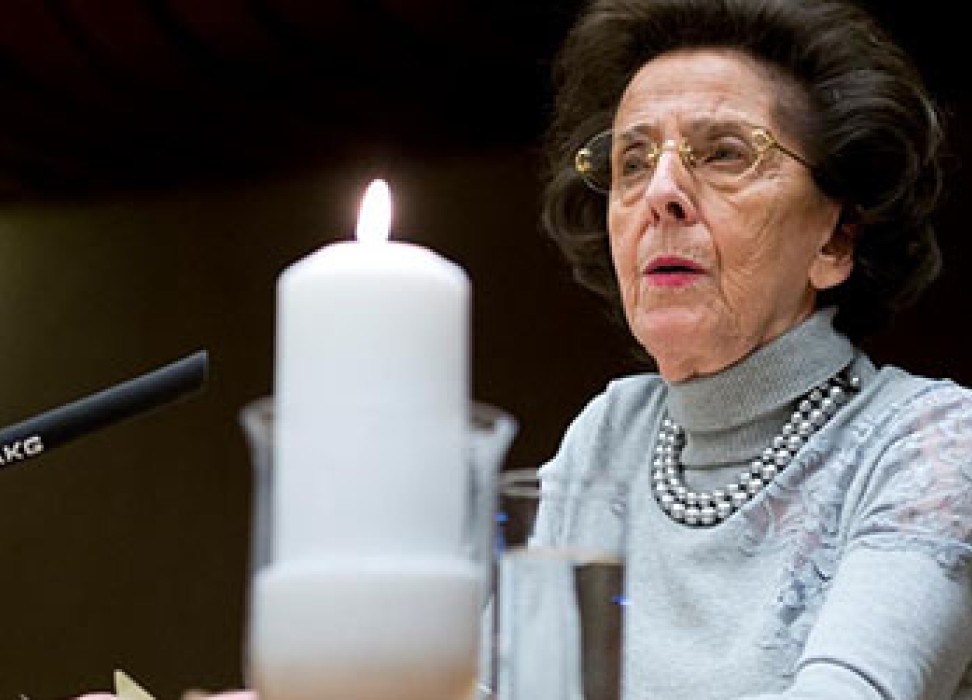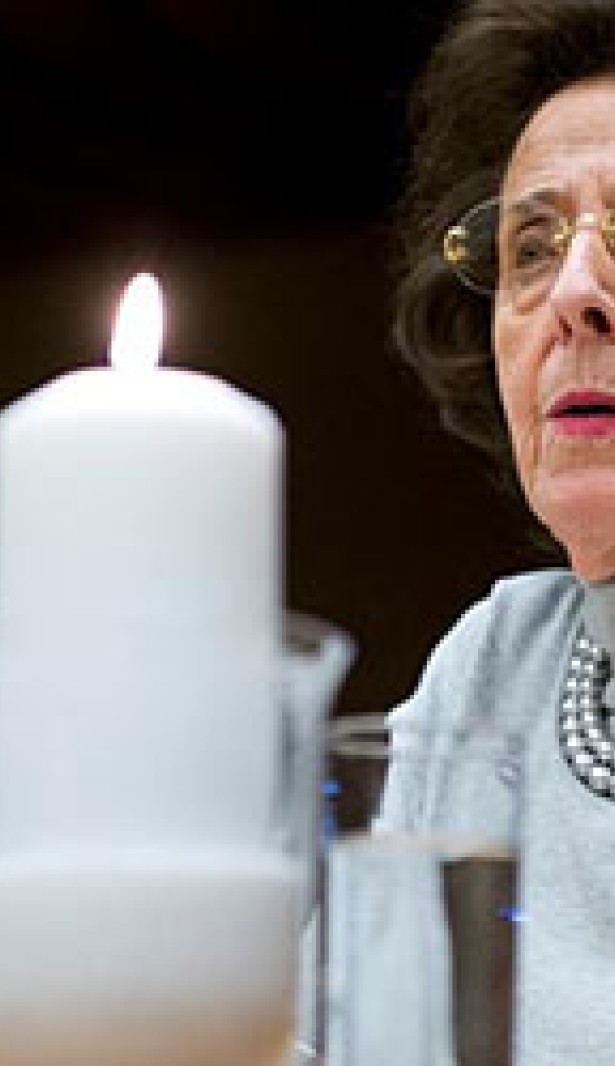A story of courage to commemorate the Holocaust
02 February 2016

In May 1940, Paulette Angel-Rosenberg was living in Metz, France with her family, when they were forced to flee from their home. They were Jewish and German troops had just seized Metz. She was 12 years old.
The family would move from town to town until they finally settled into a small village, where they hoped they would be safe.
“We were happy, we were together,” Angel-Rosenberg, now 88, recalled.
But this happiness was not to last. In 1942, Angel-Rosenberg and her family would find themselves facing one of the several rounding up of Jews in France during World War II.
She shared her experience as a Holocaust survivor during her keynote address at a Holocaust memorial ceremony held at the Palais des Nations in Geneva, Switzerland on the International Day of Commemoration in Memory of the Victims of the Holocaust.
The event was organized by the United Nations at Geneva and, in partnership with the Permanent Mission of Israel and the Permanent Delegation of the European Union. The World Jewish Congress introduced Angel-Rosenberg to the United Nations.
In a statement made to mark the day, UN Human Rights Chief Zeid Ra’ad Al Hussein said, “The Holocaust will forever remain a terrible scar on the human conscience…Today, as we commemorate the victims of the Holocaust, I hope that all of us can reflect on the need to continue to combat racism and religious or ethnic intolerance in every form, and with all our might.”
“This is our solemn duty to the memory of the victims: to demonstrate civic courage, and responsible governance,” he said. “We must prevent future acts of genocide by meeting the challenge that humanity still faces today – the task of learning to live together, as equals, in dignity, and with respect.”
Angel-Rosenberg and her family had heard from others that this roundup was occurring in Paris, but believed they were safe because they were French and at the time they were only arresting foreign Jews. However, they soon found out that the Germans occupying France wanted to eliminate all Jews.
In just two days, from 16 to 17 July, over 13,000 Jews would be arrested, deported to Drancy and then murdered in Auschwitz. A few days later, French Jews would be the next group to be deported to Drancy.
This is when they realized they needed to try to travel further into a “safe zone” that would keep them from being arrested and deported. Her family made the difficult decision to separate and travel in pairs.
Her father paid smugglers to take her and her sister Sophie on the journey to ensure their safety. The smugglers told them that they notified the authorities after which they were arrested.
Angel-Rosenberg and her sister would stay there for three weeks until the head of the prison told them that they would leave for Drancy, the last stop before death. Angel-Rosenberg was 15.
“But, we’re French sir, we were born here,” she told the officer.
It didn’t matter. They were put on a train for Drancy, the last stop before death.
Their nightmare would come to end though. The remaining prisoners were released from Drancy by the end of the year and not deported to Auschwitz. They were soon reunited with her parents in a town near Grenoble, an unoccupied area at the time, where many Jewish refugees were living.
Her family wouldn’t all be together for long because her father was arrested, tortured and killed by the Nazis. He died only three weeks before the end of the war.
After the war, she would move back to Metz with her mother and sister and in 1953, she moved to Switzerland.
She continues to share her story so that people will never forget the horrors that happened not so long ago in Europe.
“We must never allow another Shoah [Holocaust],” she concluded.
2 February 2016

